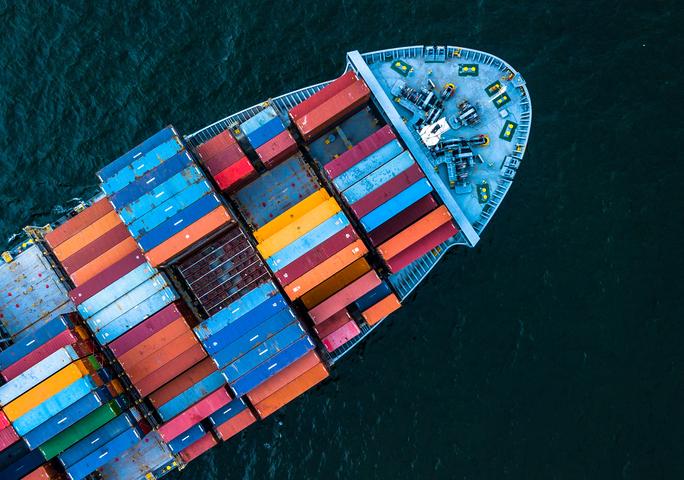Product certification and documentation are mandatory when importing or exporting a wide range of products. That said, even many experienced importers fail to understand which product certification requirements apply to their products - and how to obtain one.
In this guide, I explain what product certification really, and list some of the more common types in the European Union and the United States. In addition, I also cover fake product certification, which is increasingly common these days.
What is product certification?
Product certificates are generally documents declaring that a certain product, imported or manufactured by a company, conforms to a certain set of standards. Product certificates can either be self-issued (i.e., by the supplier or importer) or an accredited third-party - such as Notified Bodies in the European Union.
Notice that product certificates must be issued based on real test results. As such, support documentation is almost always required.
Here are a few examples:
- Lab test reports
- Good manufacturing practice (GMP) certification
- Quality management system certification (e.g., ISO 9001 or ISO 13485)
- Invoices
- Technical file
Why do I need a product certificate?
Product certificates are mandatory for a wide range of products in the United States and the European Union. Here are a few examples:
- Electronics
- Medical devices
- Children’s products
Selling products without the right documentation can result in a forced recall, fines, or failed customs clearance.
Product Certificate/Declaration Examples
Declaration of Conformity (DoC) - European Union
The Declaration of Conformity (DoC) is mandatory for all products covered by the CE marking requirements. The DoC is self-issued by the importer or manufacturing, and normally includes this information:
- Product identification/SKU
- Product features
- Name and address of the manufacturer/importer
- List of EN standards and/or EU directives
- Location
- Responsible individual
Here are some products which need a DoC in the EU:
- Electronics
- Gloves
- Helmets
- Sunglasses
- Bicycles
- Machinery
- Toys
- Medical devices
Here are also some “CE directives”:
- RoHS Directive
- Low Voltage Directive
- EMC Directive
- Radio Equipment Directive
- Toy Safety Directive
- Personal Protective Equipment Directive
- Medical Devices Directive
Notice that the DoC is issued based on actual standards and test results.
EC Certificate - European Union
Certain products imported to or manufactured in the EU, falling under one or more of the CE directives, cannot be self-certified. Instead, you need a Notified Body to provide the final review and “approval”.
The Notified Body normally reviews the technical file, DoC, test reports and other documentation. They may also carry out factory inspections.
Based on their findings, they may then issue an EC Certificate.
Products that must be certified by a Notified Body include certain types of medical devices (i.e.g., Class II and III) and certain types of Personal Protective Equipment (PPE).
Declaration of Compliance - European Union
The Declaration of Compliance is often mistaken for Declaration of Conformity (DoC), but is completely different. The Declaration of Compliance is mandatory for certain types of food contact materials sold in the EU.
Here are a few examples:
- Stainless steel water bottles
- Plastic lunch boxes
- Cutlery
The Declaration of Compliance is largely based on the lab test result, so third-party testing is required before you can issue one. Here’s an overview of the information you may need to include:
(1) The identity and address of the business operator issuing the declaration of compliance
(2) the identity and address of the business operator which imports the product
(3) the identity of the materials, the articles, products:
(4) the date of the declaration;
(5) Declaration of Compliance
(6) adequate information relative to the substances used or products of degradation
(7) adequate information relative to the substances which are subject to a restriction in food
(8) Usage
a. Types of food (which the product is made to be in contact with)
b. Time and Temperature
c. The tatio of food contact surface area to the volume used to establish the compliance of the material or article
(9) Functional Barrier
You can also learn more on the official EU website.
Children’s Product Certificate (CPC) - United States
Children’s Product Certificate (CPC) is required for all children’s products for 12-year-olds or younger. It’s also a self-issued document which doesn’t require any third-party approval. However, the CPC is strictly based on the lab test result. Given that third-party lab testing is mandatory for all children’s products in the United States, you cannot issue a CPC with one.
This must be included:
1. Product name and description
2. List of applied and mandatory ASTM and CPSC standards (e.g ASTM F963)
3. Importer information (US company name, US address, e-mail, phone)
4. Contact information of the person with access to the test report (name, address, e-mail, phone)
5. Manufacturing location (city, province, country) and date (month, year)
6. Testing date (month, year) and location (city, province, country)
7. CPSC accepted third-party lab testing company (company, contact person, address, phone, e-mail)
You can find a free template on the official CPSC website.
Further, the lab test report must be only be issued by a CPSC accepted testing company
Fake Product Certificates
Fake product certificates have been a problem for years, but even more so now. There are a few different types of fake product certificates, but the most common one is the “CE Certificate”. In fact, there’s no such thing as a “CE certificate” - yet many suppliers show them to prospective customers as proof of compliance.
Such documents can be bought from “service providers” claiming to “certify” the product. Keep in mind that those documents have no value and will not be accepted by the customs authorities, market surveillance authorities or Amazon.
Another type of fake certification is those who look seemingly legit but aren’t based on real test results. Unless there are real and verifiable test data to support the product certificate, it has no value.
